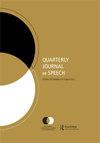修辞经济:跨国数字流通中的影响、劳动和资本
IF 1.3
2区 文学
Q2 COMMUNICATION
引用次数: 1
摘要
Web 3.0信息资本主义和威权主义挑战了我们关于情感、劳动力和资本力量的修辞循环的假设,特别是在跨国网络公众中。在稳健的生态模型的基础上,需要一个新的模型来分析跨国数字修辞流通的价值论维度,即修辞在数字流通中如何产生和积累哪些类型的价值。本文借鉴修辞资本和交际劳动理论,提出了在数字网络公众中作为一种经济循环的修辞学理论:由于数字产消者、技术、劳动、情感、商品和资本之间不断互动而产生和积累的修辞价值的总体和关系的变化。文章还试图在具有复杂循环条件的跨国背景下重新语境修辞经济模式。然后,作者阅读了中国民族主义网络运动对新疆棉花争议的回应。本文章由计算机程序翻译,如有差异,请以英文原文为准。
Rhetorical economy: Affect, labor, and capital in transnational digital circulation
ABSTRACT Web 3.0 informational capitalism and authoritarianism challenge our assumptions about rhetorical circulation in relation to affect, labor, and capital forces, particularly in transnationally networked publics. A new model is needed in tandem with the robust ecological model to analyze the axiological dimension of transnational digital rhetorical circulation, i.e., how rhetorics produce and accumulate what types of value as they circulate digitally. Drawing on theories of rhetorical capital and communicative labor, this article proposes a theorization of rhetorics that circulate in digitally networked publics as an economy: the changing totality and relationships of rhetorical value produced and accumulated as a result of constant interactions among digital prosumers, technologies, labor, affect, commodities, and capital. The article also seeks to recontextualize the model of rhetorical economies in a transnational context with complex circulatory conditions. The author then reads the rhetorical economy of a Chinese nationalist cyber campaign in response to the Xinjiang cotton controversy.
求助全文
通过发布文献求助,成功后即可免费获取论文全文。
去求助
来源期刊

Quarterly Journal of Speech
COMMUNICATION-
CiteScore
1.80
自引率
36.40%
发文量
39
期刊介绍:
The Quarterly Journal of Speech (QJS) publishes articles and book reviews of interest to those who take a rhetorical perspective on the texts, discourses, and cultural practices by which public beliefs and identities are constituted, empowered, and enacted. Rhetorical scholarship now cuts across many different intellectual, disciplinary, and political vectors, and QJS seeks to honor and address the interanimating effects of such differences. No single project, whether modern or postmodern in its orientation, or local, national, or global in its scope, can suffice as the sole locus of rhetorical practice, knowledge and understanding.
 求助内容:
求助内容: 应助结果提醒方式:
应助结果提醒方式:


